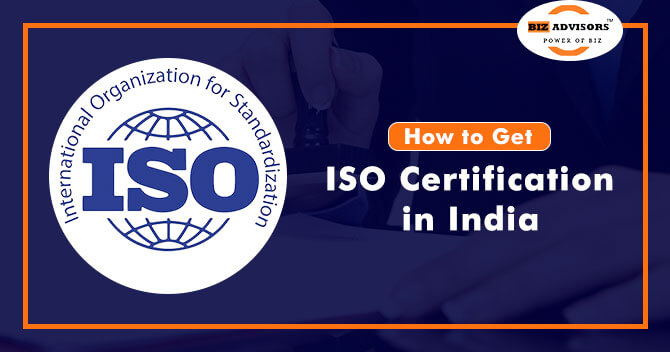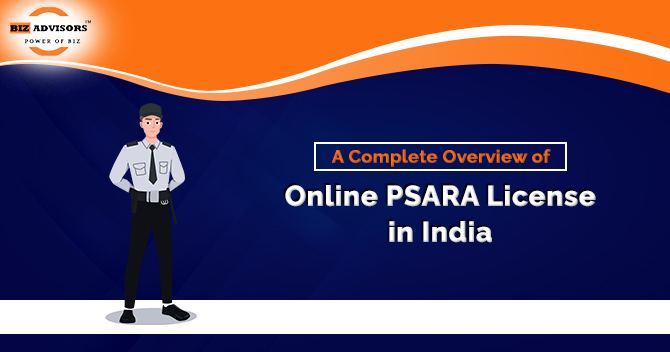ISO refers to International Organization for Standardisation. It is an independent organisation that sets standards for the effectiveness, safety, and integrity of goods and services offered by companies. ISO accreditation builds business credibility and raises the efficacy of an organization as the market becomes more competitive regularly. Only after applying the quality requirements outlined by the international organisation of standardisation to the good or service a person can acquire ISO Certification in India.
The Bureau of Indian Standards is responsible for issuing ISO certificates in India. Before applying for an ISO Certification in India, the applicant must choose the sort of ISO required. Further is the selection of the ISO certification body. ISO itself does not provide a certificate to the companies. Every applicant must follow the procedure to obtain ISO Certification.
What is ISO Certification?
A management system, manufacturing process, service, or documentation technique can receive ISO certification to confirm that it satisfies all requirements for standardisation and quality assurance. An independent, non-governmental worldwide body called ISO (International Organization for Standardization) creates standards to guarantee the effectiveness, efficiency, and quality of goods, services, and systems.
There are ISO Certifications available in a variety of industrial sectors, including energy management, social responsibility, and medical equipment. Consistency is ensured by ISO standards. Each certification has its own standards, requirements, and numerical classification.
Requisites for Certification
The following are the requisites for ISO Certification in India:
- Applicable Fee- The cost of ISO certification in India varies depending on the organisation. The ISO certification organisation will calculate the cost for ISO certification by considering factors like an organization’s size, employee count, organisational processes, risk level related to the organization’s service offering, the complexity of the management system, and the number of shifts worked.
- Processing time for ISO Certification in India- The processing period for ISO certification in India differs from organisation to organisation as well. After determining an organization’s size, the ISO certification authority will notify the specific processing time for completion of ISO certification.
- Choosing an ISO Certification type- The entrepreneur must first select the kind of ISO certification that the company requires.
- OHSAS 18001 – Occupational Health & Safety Management System
- ISO 37001 – Anti-bribery management systems
- ISO 31000 – Risk Management[1]
- ISO 27001 – Information Security Management System
- ISO 10002 – Compliant Management System
- ISO 14001:2015 – Environment Management System
A body for ISO Certification in India (ISO Registrar)- ISO does not certify businesses. The external certification bodies must carry it out. Recognizing the reliable certifying authority is so required. The entrepreneur needs to adhere to the items outlined below when choosing a certification body. Evaluate several certification bodies, check if the certification body uses the relevant CASCO standards, and check whether the certification body is accredited.
Documents needed for ISO Certification in India
The following are the documents needed for ISO Certification:
- A copy of the applicant’s PAN card and Aadhar card is also required as confirmation of identity and residency.
- Passport-size photo of the applicant.
- Electricity or utility bills
- For privately owned property, a copy of the sale deed.
- A Rent Agreement is necessary if the place of business is a rented building.
- A Certificate of Incorporation, the MOA, and the AOA in the case of a business
Procedure for ISO Certification in India
The following are the procedure for ISO Certification:
- Submission of an application – The applicant must submit an application using the required form (depending on the ISO registrar). In addition to liability concerns, confidentiality agreements, and access rights, the application should also include the rights and obligations of the parties to the certifying body and the entrepreneur.
- Document review – The application is to be submitted along with the necessary paperwork, and the ISO certification agency will review it. Quality manuals and papers about the various policies followed by the business or organisation will be examined by the ISO certification agency.
- Initial review of quality – The Pre-assessment is a preliminary evaluation of the quality management system in a company to find any serious flaws or omissions, and the registrar will give the company a chance to address the issues before the normal registration assessment is carried out.
- On-site Auditing- The ISO registrar will physically check the organisation on-site to audit. If the registrar discovers anything that doesn’t comply with the ISO standards during the audit, the registrar assesses the severity and issues findings. Depending on their non-conformities—are divided into one of two groups.
- A Minor non-conformance – This type of non-conformance deals with minor violations of procedures or systemic failures to adhere to ISO standards.
- A major non-conformance deals with situations when non-conforming items are likely to reach customers or where a quality system breakdown makes it difficult for the system to meet the standards’ criteria.
5. Final review- Before all serious nonconformities are resolved and confirmed by the registrar, the registration cannot proceed. It often requires re-examining the impacted regions and, of course, the expenses involved.
6. An ISO certificate- Once all non-conformities are resolved, the ISO audit report will be updated with all the new information, and the registrar will award the ISO certification.
7. Observing audits-The main goal of a surveillance audit is to confirm that the organisation is upholding ISO quality requirements. It is performed occasionally.
Conclusion
ISO Certification is crucial for establishing trust in international trade and improving operational effectiveness. Encouraging the business to provide the highest caliber services aids in enhancing consumer happiness and services. ISO Certification is crucial for establishing credibility if a company or organisation wants to grow its operations internationally. The product will not be accepted on the basis of quality if the standard is not met. The enterprises would benefit from ISO and have an advantage over rivals in internal government bids. The market is a broad concept to define as a whole. However, it unquestionably depends on the legitimacy and repute of a group or a company. If you want to know more about ISO Certification you can consult with Bizadvisor.io.
Read our article:Benefits of Obtaining IEC Registration in India
 9559179325
9559179325 9559179325
9559179325





